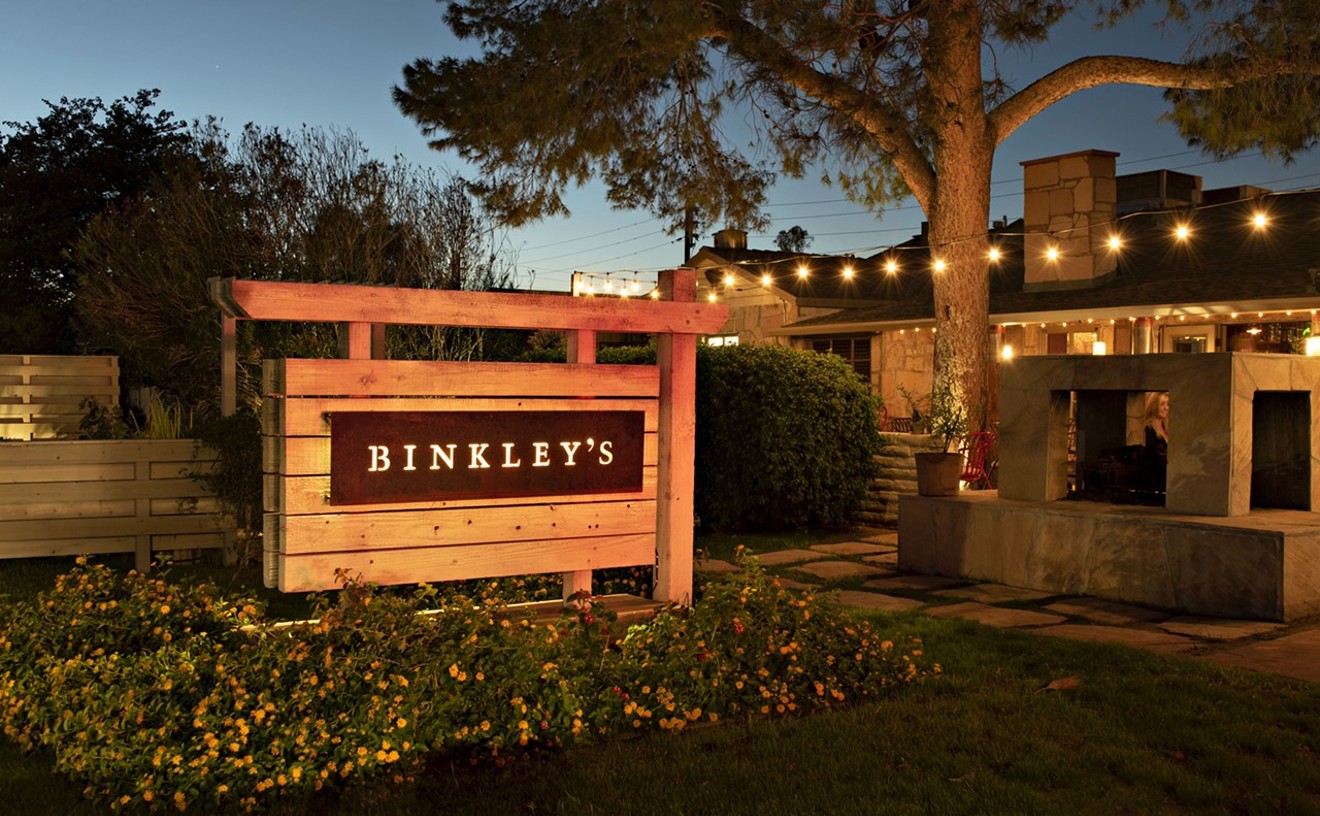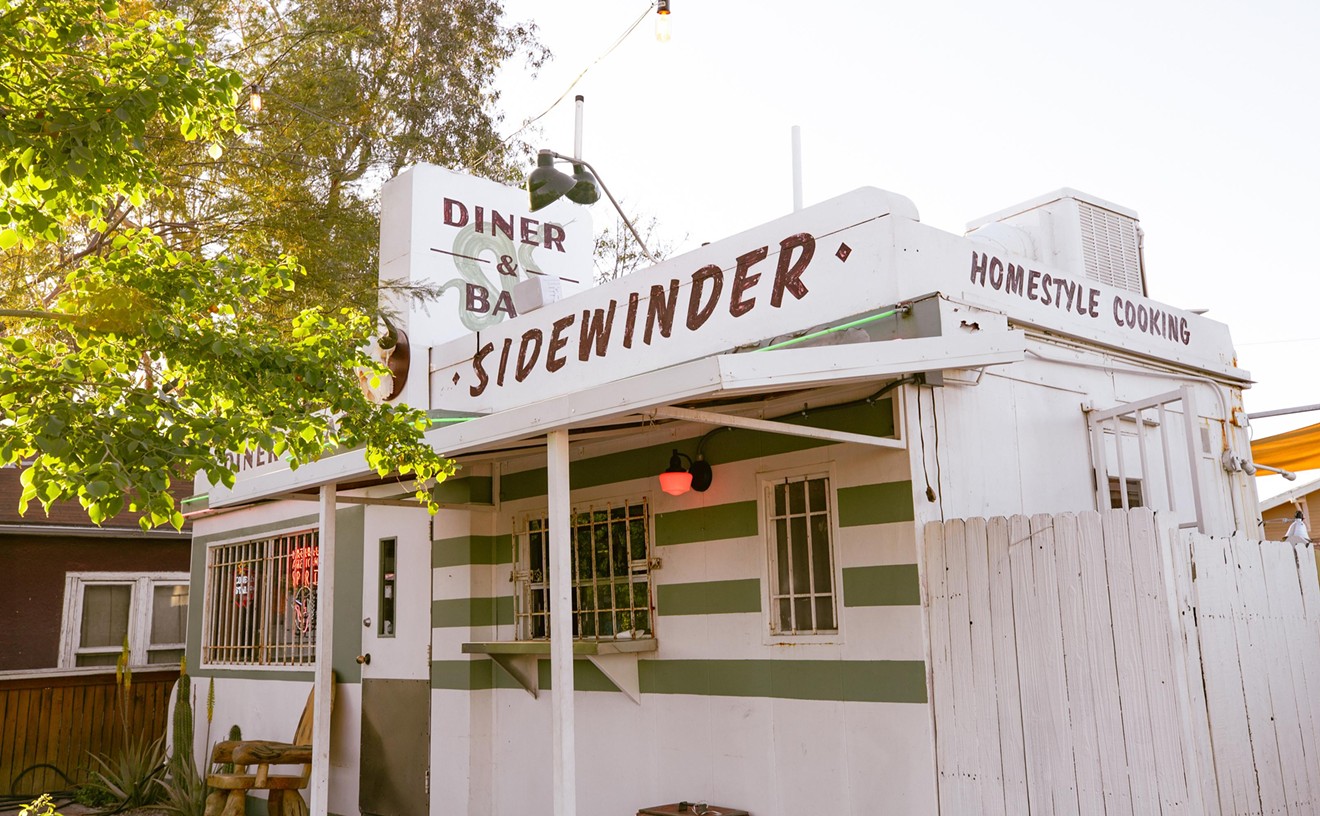Mandy Bublitz of St. Francis Talks About Baking, Brick Ovens, and the Virtues of Quality Bread
Being a professional baker, Mandy Bublitz has a white chef’s coat, but she doesn’t like to wear it. When we meet, the coat is unbuttoned, and she’s wearing a tie-dye T-shirt underneath. This is how she rolls: She’s easygoing, plainspoken, and good-humored. When she’s done with her overnight shift, she’s...
October 26, 2015
[
{
"name": "Air - MediumRectangle - Inline Content - Mobile Display Size",
"component": "18478561",
"insertPoint": "2",
"requiredCountToDisplay": "2"
},{
"name": "Editor Picks",
"component": "16759093",
"insertPoint": "4",
"requiredCountToDisplay": "1"
},{
"name": "Inline Links",
"component": "17980324",
"insertPoint": "8th",
"startingPoint": 8,
"requiredCountToDisplay": "7",
"maxInsertions": 25
},{
"name": "Air - MediumRectangle - Combo - Inline Content",
"component": "16759092",
"insertPoint": "8th",
"startingPoint": 8,
"requiredCountToDisplay": "7",
"maxInsertions": 25
},{
"name": "Inline Links",
"component": "17980324",
"insertPoint": "8th",
"startingPoint": 12,
"requiredCountToDisplay": "11",
"maxInsertions": 24
},{
"name": "Air - Leaderboard Tower - Combo - Inline Content",
"component": "16759094",
"insertPoint": "8th",
"startingPoint": 12,
"requiredCountToDisplay": "11",
"maxInsertions": 24
}
]
Being a professional baker, Mandy Bublitz has a white chef’s coat, but she doesn’t like to wear it. When we meet, the coat is unbuttoned, and she’s wearing a tie-dye T-shirt underneath. This is how she rolls: She’s easygoing, plainspoken, and good-humored. When she’s done with her overnight shift, she’s all too happy to drink a beer first thing in the morning. In conversation, she’s refreshingly honest, and Bublitz sounds like she could talk with just about anybody.
Bublitz grew up in Michigan and moved to Phoenix six years ago to be closer to her family. She spent half a decade working in retail, a tedious job that never really satisfied her. Then, without warning, Bublitz became obsessed with baking bread. She taught herself the time-consuming craft of fermenting sourdough, refined her skills, and impressed the owners of St. Francis, the well-loved midtown eatery. She was hired at the restaurant last November.
Bread had completely altered the trajectory of Bublitz’s life. Now she arrives at St. Francis at 11 p.m. and bakes until 5 or 6 in the morning. She also works at Public Market, where she creates pastries and breads, including the famous cinnamon rolls. Until last year, Bublitz had very little experience in restaurant culture, and she has quickly had to acclimate to the new lifestyle.
Of all culinary forms, how did you pick baking?
You know, I can tell you the exact moment. So I moved out here, I had this retail job that paid the bills. In Arizona, you need hobbies in the summer. You wouldn’t think baking, because it’s really, really hot. I read a lot in the summer. My baking is very much social media-connected. I have a friend in Michigan who said, “Have you read Kitchen Confidential, Anthony Bourdain’s first really big hit?" I love Anthony Bourdain, so I read it. There’s a part in there where he’s talking about one of the guy that bakes bread. This baker was a total heroin addict, but they put up with his crazy baloney because he made this amazing bread. He’s all cracked out, but they put up with his bullshit because his bread was the best, this sourdough bread. I was like, “What was that bread?”
So if that Anthony Bourdain chapter had been about chicken teriyaki, would you have pursued that?
He writes about a lot of stuff. I feel like there are bakers and cooks. Not that they can’t be the same person, I think there’s a lot of crossover, but I’m not the greatest cook. I don’t have any knife skills. I love when people feed me. But baking is more about planning, and that speaks to my weird, OCD mind.
How did you teach yourself?
I’ve always been a big research person, and the Internet makes it so easy. I wasn’t connected to any food people in Arizona. I had met some people through social media that either worked in the industry or knew restaurants to go to. I still wouldn’t call myself a foodie. But I became really obsessed with sourdough. My friend who told me about Kitchen Confidential said, “I have this bread making book that I really like, The Bread Maker’s Apprentice.” She’s a chemical engineer, so it was a little technical for me. Well, there is a freakishly large bread community online. There are people all over the world that make bread and talk about bread. A lot of the stuff I learned was just by Googling it. There is so much information out there about sourdough. You can get super technical, or you can just start baking. And I just started baking.
Why do you say you’re not a foodie?
Maybe it’s just the term. But I don’t have to be a foodie now, because now I’m in the industry. I like to eat, but coming from Michigan, my mom always had a garden. I never really thought about the local food movement, because that’s what we grew up with. There was always a local market down the street, so I was always used to seasonal foods. I very much go to the same places all the time. I’m interested when a new place opens up, because I want to support the local food people, but there are places I go over and over, because I love those places.
Your life has drastically changed, from the anonymity of retail to working in a kitchen in a respected restaurant. How has the transition been?
You know, good and bad. I get the thing about kitchen energy now. I was doing full-time here for nine months. That was the original agreement when I got hired. I wanted this job just to see about production. I didn’t really want to work at a restaurant. That wasn’t my goal at all. They pretty much know. I’m pretty vocal. I wanted to bake bread, and all my friends that I had talked to said, “You think you want to do this, but you don’t want to do this. It’s weird work, it’s stupid hours. But if you think you want to, do production.” When I started, I worked five days a week for nine months. The adjustment was pretty hard. I’m not a good sleeper anyway. You have to change everything. You can’t drink coffee in the morning, because you have to go to bed. I had questioned it before I quit my job. A couple of my friends had really helped me with that. “Do you want to just do this? Is it gonna be fun if it’s your job?”
Is it?
You know, yes and no. I’m still obsessed with the baking. I got my St. Francis job and then I got my other job [at Public Market]. The overnight baking position is weird, and people are not begging for this job, really. It’s not hard. It’s just five or six hours a night. I don’t work 40 hours a week. In the winter, when we’re really busy, it might take a little bit longer. It’s like 100 loaves a night. But I didn’t know about kitchen energy. Front-of-house here, they’re shutting down at night, and they’re awesome. For the most part, I loved everybody here. Then I go to the [Public Market] café, to a full, busy kitchen, and I’m like, “Whoa.” I would get really pumped up because of the energy, but you can spin out of control.
How do you decide what to make?
I follow their recipe. But I’m amazed how just flour, water, salt – it changes with whoever’s baking.
Now that you’ve become a full-time baker, has it changed your assessment of other breads?
Oh, yeah, totally. I feel like it’s like pizza. You know how there’s no bad pizza, it’s just some is better than others? I say pizza because, in this town, there’s pizza everywhere. Now bread – there’s bread I won’t eat. But that’s pretty much the packaged, mass-produced stuff. If that’s the choice, between buying packaged bread and not eating bread, I just wouldn’t eat bread. I don’t eat crappy bread anymore.
So, for the past 15 year or so, there’s been this massive anti-carb movement. Is there something kind of naughty about what you do?
Something kind of decadent? Like I’m flipping the bird at the whole health industry? Yes, definitely. And all the research they’ve done about how gluten is the devil, they’re kind of backtracking a little bit. They’re learning that, if you’re making bread with freshly milled whole grain, and you’re fermenting it for a long time with sourdough, it’s good for you. Grains are good for us. I don’t care what the paleo people say. Those freaking cave men were not eating big mastodon legs all day. They didn’t have frickin’ organically grown avocados. I’m not saying anything against paleo. If that’s what works for you, that’s great. I’m obviously not the picture of health. But I feel like people are finally getting that good bread, made the right way, is delicious, and if you’re going to eat bread, eat that bread. It’ll be interesting to see how the millennials do it, what they’ll eat.
The management at St. Francis bills the restaurant as casual, but it also has cloth napkins, a refined atmosphere. What’s your take?
I think it’s supposed to be very service-oriented. But I’m never here during the day. My brother lives downtown, and it’s his favorite restaurant. But I had never eaten here before – until I started working here. When Aaron [Chamberlin] opened this restaurant, his idea was a neighborhood place where people could come with their kids and get a healthy, delicious meal. They try to use seasonal, local stuff. I love that. I love the Arizona restaurant movement. Aaron’s been really good to me. Everyone is like, “What do you want to do?” And I’m like, “I just want to bake some bread.”
Do you ever imagine having your own place?
You know, if I could take that oven. That’s my obsession, that wood oven. It’s interesting that you called me now, because I am all up in the air. For me, this is the tip of the iceberg. It’s hasn’t even been a year. I get all wound up – I need to do bigger, I need to do better, I need to do quicker – but it hasn’t even been a year. I’m still kind of finding my way. There is so much too learn. But I’m all in.

KEEP NEW TIMES FREE...
Since we started New Times, it has been defined as the free, independent voice of Phoenix, and we'd like to keep it that way. Your membership allows us to continue offering readers access to our incisive coverage of local news, food, and culture with no paywalls.
You can support us by joining as a member for as little as $1.

Robert Isenberg


Newsletter Sign Up
Enter your name, zip code, and email
I agree to the Terms of Service and
Privacy Policy
Sign up for our newsletters
Get the latest music, news, free stuff and more!
Trending
Use of this website constitutes acceptance of our
terms of use,
our cookies policy, and our
privacy policy
The Phoenix New Times may earn a portion of sales from products & services purchased through links on our site from our affiliate partners.
©2024
Phoenix New Times, LLC. All rights reserved.
Do Not Sell or Share My Information
Do Not Sell or Share My Information






